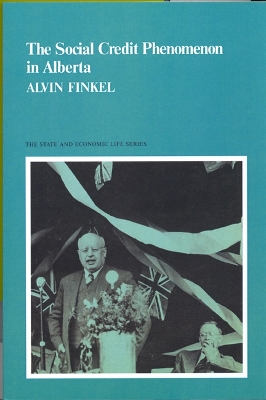Few parties in political history have had such a swift metamorphosis from one end of the political spectrum to the other as did the Social Credit Party of Alberta. Between its establishment in the 1930s and the defeat of the Social Credit government in 1971, the party changed from a movement-based reformist organization to a cliquish, religious-oriented outfit whose main purpose was to hold the levers of power. In this account of the Social Credit transformation, Alvin Finkel challenges earlier works which focus purely on Social Credit monetary fixations and religiosity. He argues that the early party is best seen as a coalition of reformers, including working-class social democrats, the unemployed, small business owners, and farmers placed in jeopardy by the Depression. In its first term of office, Social Credit was perceived as on the left, opposed in the 1940 provincial election by a right-wing coalition. During the later Aberhart years, and especially after Ernest Manning's accession to the premiership, Social Credit switched its fire from bankers to socialists and the party's rhetoric became extremely right-wing.
Manning opposed, on ideological grounds, most of the social programs introduced by federal government after 1945. Though patronage was rife, most Albertans regarded Social Credit as righteous because of the leadership of Manning, a radio evangelist. Only Manning's departure from the political scene began the slow process of decay of the governing party.
- ISBN10 080206731X
- ISBN13 9780802067319
- Publish Date 1 June 1989 (first published 1 January 1989)
- Publish Status Active
- Publish Country CA
- Imprint University of Toronto Press
- Format Paperback (US Trade)
- Pages 280
- Language English
